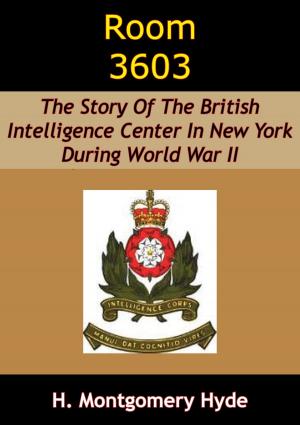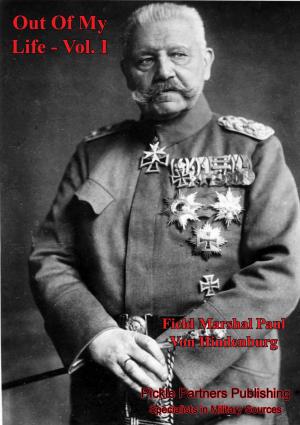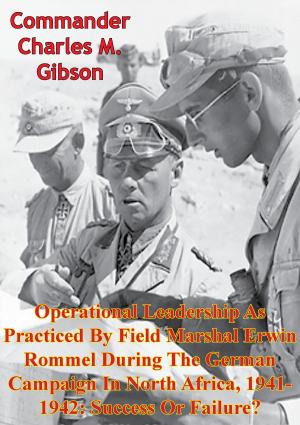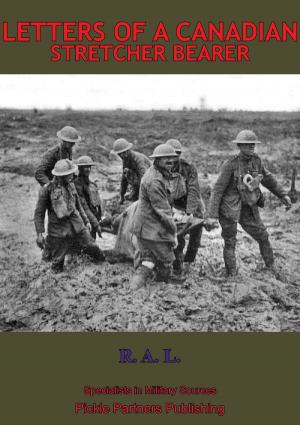The 100/442D Regimental Combat Team's Rescue of the Lost Battalion
A Study in the Employment of Battle Command
Nonfiction, History, Germany, European General, Military, United States| Author: | Major Nathan K. Watanabe | ISBN: | 9781782898283 |
| Publisher: | Lucknow Books | Publication: | August 15, 2014 |
| Imprint: | Lucknow Books | Language: | English |
| Author: | Major Nathan K. Watanabe |
| ISBN: | 9781782898283 |
| Publisher: | Lucknow Books |
| Publication: | August 15, 2014 |
| Imprint: | Lucknow Books |
| Language: | English |
This thesis examines the application of battle command during the 100/442d Regimental Combat Team’s rescue of the First Battalion, 141st Infantry Regiment, 36th Infantry Division, the “Lost Battalion.” As background, this study presents a brief history of the Japanese in Hawaii and the United States, of the formation and record of the 100/442d RCT, and of the battle to rescue the Lost Battalion. The contemporary concept of battle command is defined as per Army Field Manual 3-0, Operations (June 2001) and Field Manual 22-100, Leadership; Be, Know, Do (August 1999) and shown to encompass the World War II-era concepts of command and leadership.
This study examines how the tenets of battle command-visualize, describe, direct-were applied by the 36th Division and the 100/442d RCT during the operation. Specific examples from the battle will illustrate both the use and neglect of the precepts of battle command and illustrate the importance of sound command and leadership techniques as well as the value of unit cohesion in present-day operations.
This thesis examines the application of battle command during the 100/442d Regimental Combat Team’s rescue of the First Battalion, 141st Infantry Regiment, 36th Infantry Division, the “Lost Battalion.” As background, this study presents a brief history of the Japanese in Hawaii and the United States, of the formation and record of the 100/442d RCT, and of the battle to rescue the Lost Battalion. The contemporary concept of battle command is defined as per Army Field Manual 3-0, Operations (June 2001) and Field Manual 22-100, Leadership; Be, Know, Do (August 1999) and shown to encompass the World War II-era concepts of command and leadership.
This study examines how the tenets of battle command-visualize, describe, direct-were applied by the 36th Division and the 100/442d RCT during the operation. Specific examples from the battle will illustrate both the use and neglect of the precepts of battle command and illustrate the importance of sound command and leadership techniques as well as the value of unit cohesion in present-day operations.
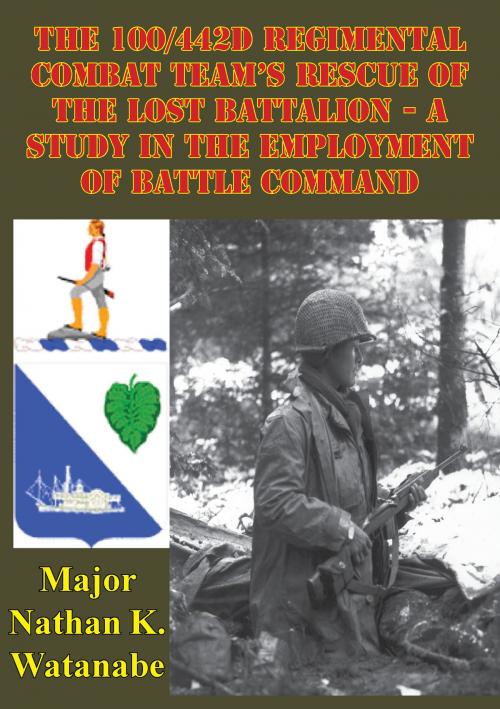
![Cover of the book U122: The Diary of a U-Boat Commander [Illustrated Edition] by Major Nathan K. Watanabe](https://www.kuoky.com/images/2015/november/300x300/9781786255433-3OF4_300x.jpg)
![Cover of the book Airborne Assault On Holland [Illustrated Edition] by Major Nathan K. Watanabe](https://www.kuoky.com/images/2014/august/300x300/9781782894636-4uOC_300x.jpg)
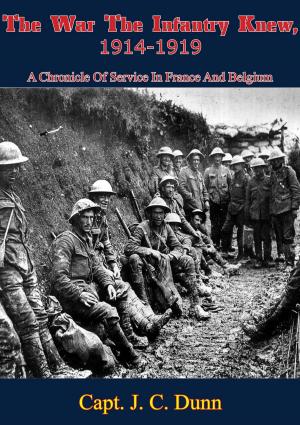


![Cover of the book Gallipoli Diary Vol. II [Illustrated Edition] by Major Nathan K. Watanabe](https://www.kuoky.com/images/2015/november/300x300/9781786251084-Blnh_300x.jpg)
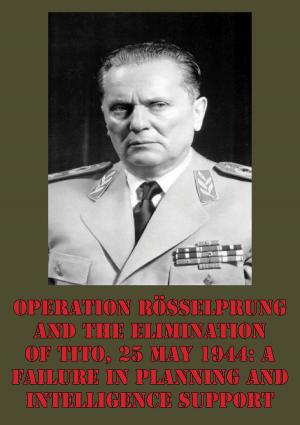
![Cover of the book On The Road To Kut, A Soldier’s Story Of The Mesopotamian Campaign [Illustrated Edition] by Major Nathan K. Watanabe](https://www.kuoky.com/images/2014/june/300x300/9781782891758-zjOL_300x.jpg)
![Cover of the book The Curtain Of Steel [Illustrated Edition] by Major Nathan K. Watanabe](https://www.kuoky.com/images/2015/november/300x300/9781786255389-HRfc_300x.jpg)
![Cover of the book The Big Fight (Gallipoli To The Somme) [Illustrated Edition] by Major Nathan K. Watanabe](https://www.kuoky.com/images/2015/november/300x300/9781786255273-sC78_300x.jpg)
